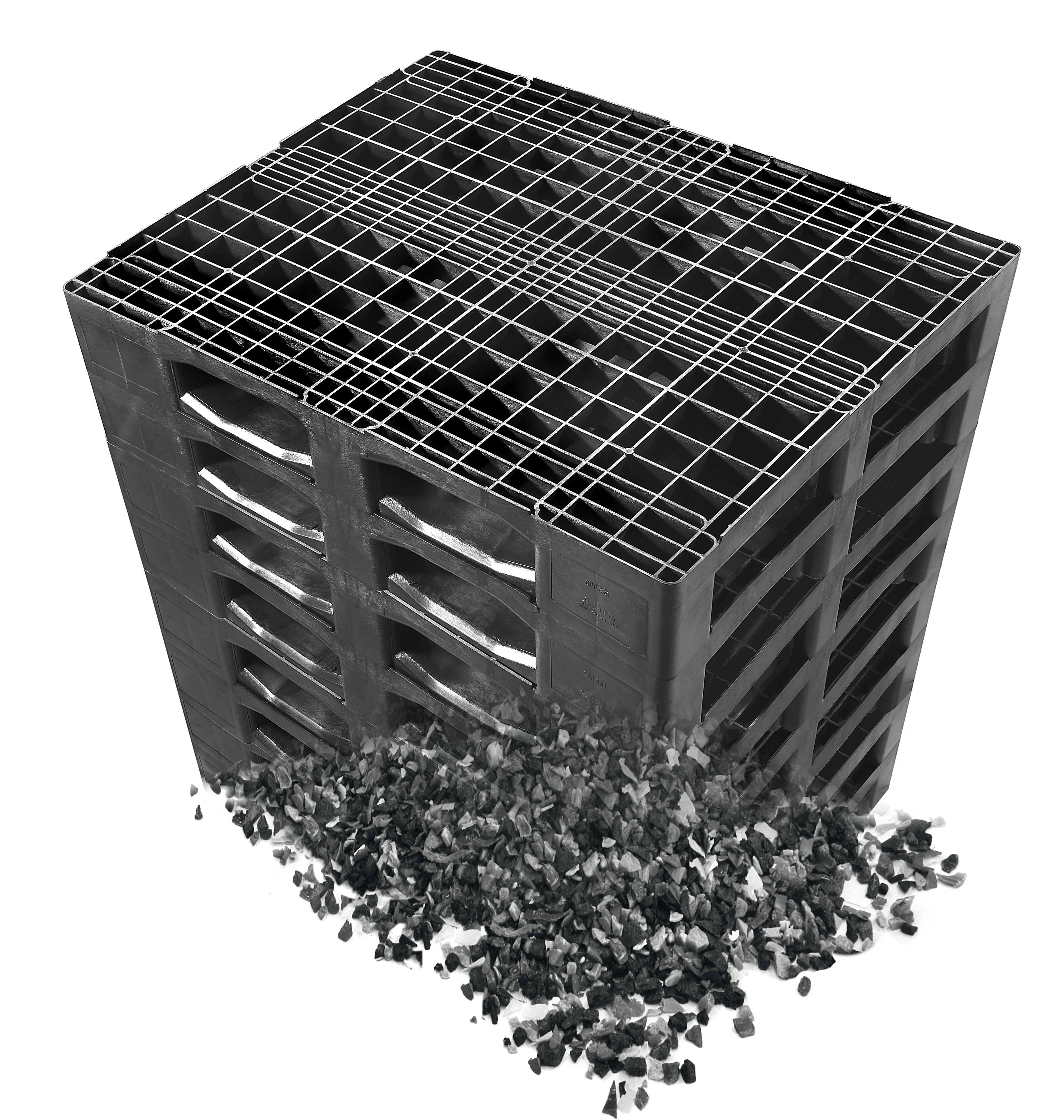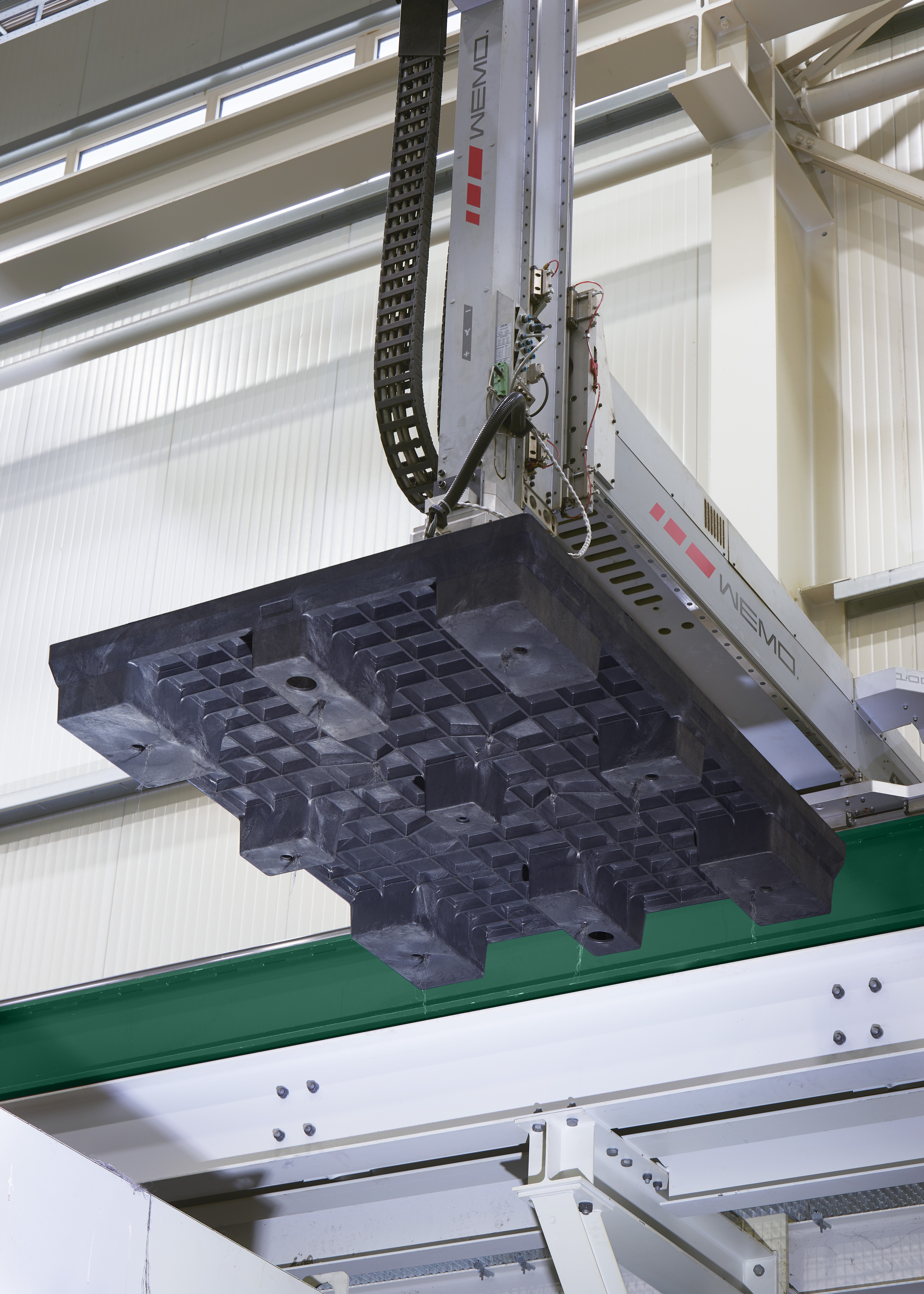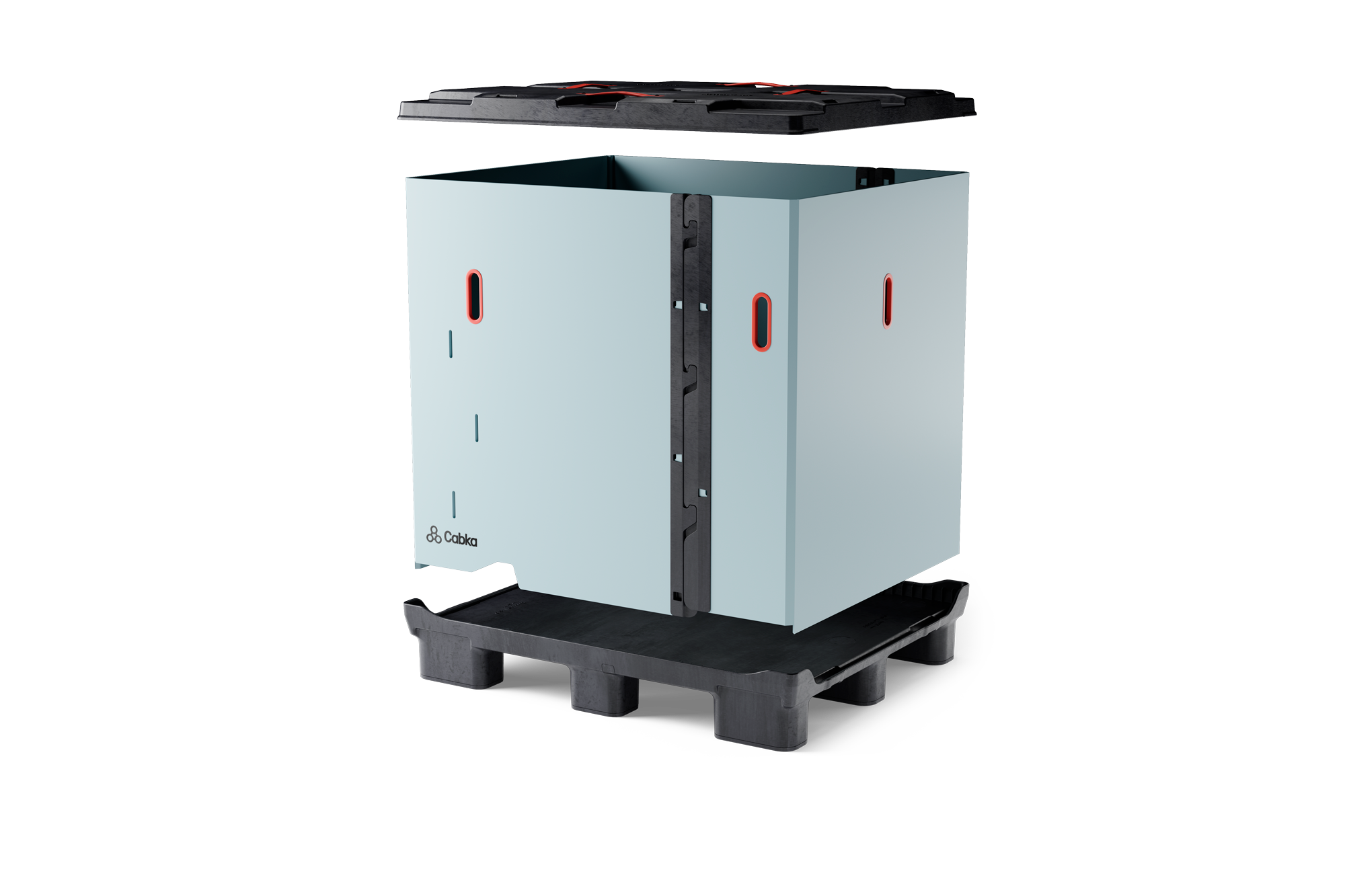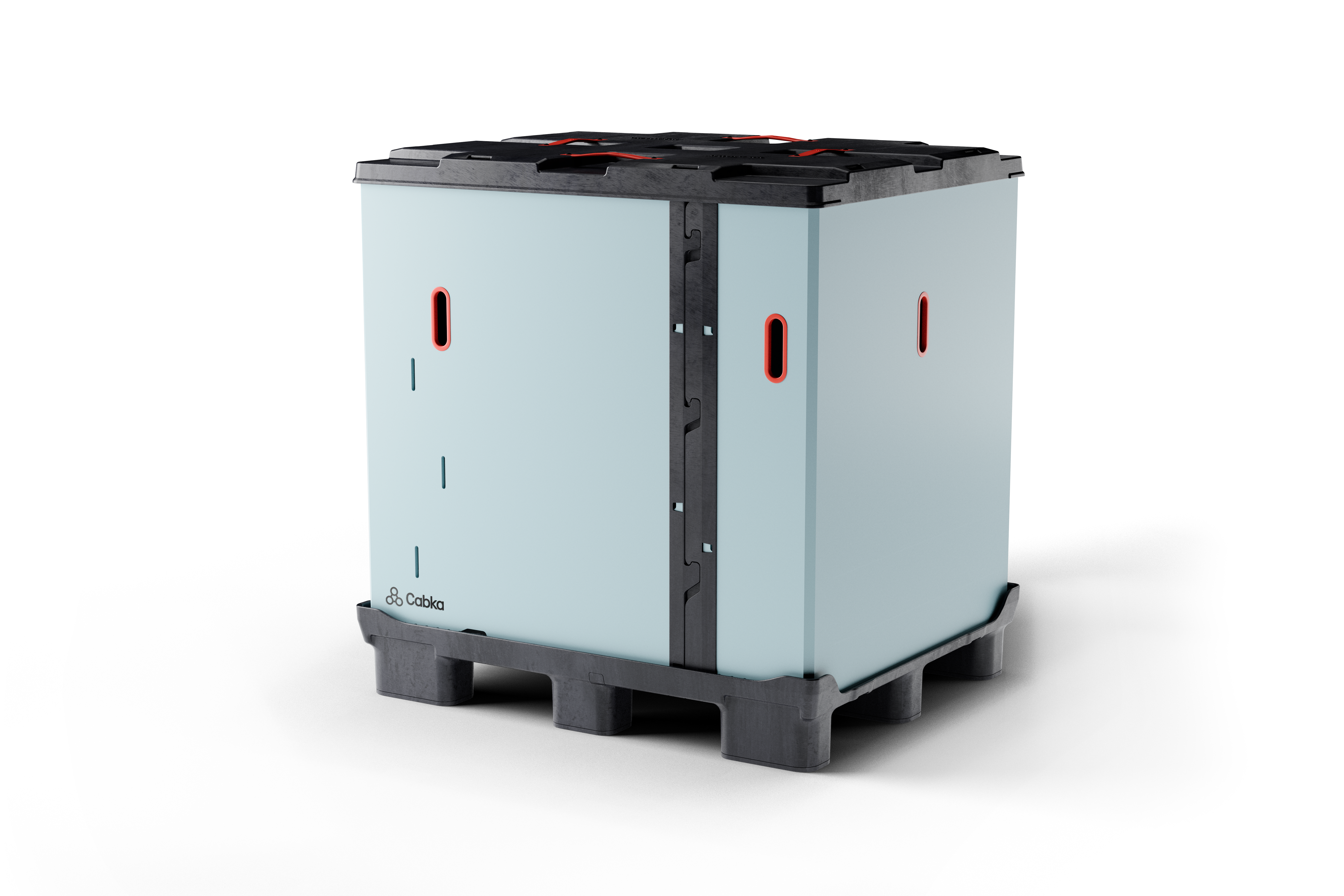Logistics in Transition to a Circular Economy “We can’t afford to create more waste in logistics”
By Jean-Marc van Maren, Cabka
As the economy transitions from linear to circular, logistics will change as well. Reverse logistics will become more important, as opposed to the forward logistics of getting a product to the customer. Reverse logistics is the process of returning products, components, and materials to the value chain. Cabka, a specialist in reusable transport packaging, has risen to this challenge. The expert in recycled plastics develops forward and reverse logistics solutions that close the material loop.
Our current take-make-waste economy is designed for high-volume throughput of materials and products that result in enormous landfill and incineration. Combined with a growing global population and ever-increasing consumption patterns, this take-make-waste model has led to severe degradation of natural systems and climate change.
The future economy is clearly the circular economy: global challenges, growing awareness in society and companies, ever more laws and regulations, and rising energy and raw material costs are forcing users and manufacturers to rethink their business models. The goal must be to create value by reusing products and components. In a perfect circular economy, there is no waste. The impact on the next generations of long-life transport packaging will be significant. Single-use transport packaging will disappear from the market and the amount of transport packaging will be reduced. It will be reused as much as possible, repaired, and at the end of its life, all recycled into new transport packaging.
This approach will also be followed by the users of transport packaging. It will be important for them to reuse the transport packaging and to achieve a very high number of reuse cycles. To achieve this, transport packaging must be light, space-saving and as durable as possible. This means it can be used for storage and transportation processes on a sustainable basis.
The clear advantage of plastic reusable transport packaging is that it combines recycling and reuse. Plastic clearly outperforms cardboard and wood in terms of reusability and waste reduction. Manufacturers who use recycled plastics instead of virgin materials are meeting the demands of the circular economy transition. Another important step towards greater sustainability is to take back transport packaging from users at the end of its useful life so that it can be reprocessed or repaired if necessary.

Waste is the new raw material
Cabka, a manufacturer of large load carriers and pallets made from recycled plastics, also has a vision of producing in a way that is suitable for recycling. Founded in Germany, Cabka is now a multinational company that has been recycling and producing in the United States since
Recycling instead of disposal: Manufacturers and users in logistics must ensure that recyclable materials remain in a closed material cycle.
2005. The specialist established itself in 1994 with a new processing technology and as a pioneer in the recycling of difficult-to-recycle plastics. The first Cabka plastic pallet made from recycled material was introduced to the market in 1998.
Today, Cabka is an industry leader in transforming plastic waste into innovative reusable transport packaging. Cabka avoids the use of virgin materials as much as possible and instead utilizes recycled materials that remain in the cycle. These materials can be recycled several times without losing their significant technical and functional properties.
The new development and design principles applied by Cabka go far beyond the functionality of the transport packaging product in terms of design for manufacturing, recycling, and sustainability. The returnable packaging products are designed for optimized production. They are easy to assemble, easy to automate and enable reliable production. Cabka focuses on recyclable products that can be easily upgraded, repaired, and recycled. They are also sustainable because they are durable and manufactured with maximum use of recycled materials and minimum use of materials and energy.
Plastic waste is the best feedstock for manufacturing transport packaging. For sustainable companies, old plastic products are not waste, but the basis for creating something new. Cabka processes the recycled plastics from various plastic waste streams. The advantage: old plastics do not have to be incinerated in an environmentally harmful way or even dumped in landfills. Cabka obtains the necessary know-how for the development and processing of recycled materials at its specially established innovation center in Spain. There, the company pools its knowledge and maintains a database of more than 3,000 material formulations.

Cabka is an industry leader in transforming plastic waste into innovative reusable transport packaging.
Challenge accepted
The circular economy should not be an obligation. Users and producers should embrace it as a promising business model for the future. Cabka is already well on its way. In 2022, the company transformed more than 120 kilotons of waste into new products, so 86 percent of its production consisted of recycled content. Cabka is developing new post-consumer plastic waste streams to further advance its sustainability development goals.
Cabka is particularly interested in closing the loop by developing buy-back programs, which it has already implemented with several companies. Here, users bring their used pallets and containers directly into the appropriate recycling streams for production.
Examples of reusable solutions
Cabka develops many of its sustainable solutions in close cooperation with partners. This includes its collaboration with the logistics company CHEP. The agreement, signed in 2022, makes use of Cabka's extensive know-how in product development, materials, and processing. The container solution will be fully adapted to CHEP's performance requirements and will maximize the use of recycled materials, enabling a fully circular approach. By signing this agreement, CHEP has reaffirmed its goal of providing sustainable solutions that are suitable at different points along its customers' supply chains. And it is in line with the company's zero waste commitment, which includes innovating more closed-loop products and aiming to use 30% recycled or upcycled plastic waste by 2025.
Another successful example of close collaboration is the supply of a large reusable container solution to a large retailer. These large foldable containers are made from 100% recyclable high-quality plastics and are designed for extreme reusability. Use of the containers creates significant efficiencies in transportation and logistics to enable the circular economy. Single-use packaging in landfills is avoided. This reduces solid waste and eliminates the need to recycle or remanufacture single-use packaging, thereby reducing carbon emissions (greenhouse gases). The units provide better product protection, resulting in less product damage and waste. Cabka was also able to improve the efficiency of the return logistics for this project, as at least four times as many empty containers can fit on one truck. Finally, the loop can be closed by taking end-of-life containers back for recycling. With this cooperation, Cabka is supporting some of the retailer’s long-term recycling needs and using various wastes as feedstock for future production.
Cabka has also been a trendsetter in the implementation of RFID solutions for pallets. This technology has been used for many years in the Heilbronner half-pallet, which Cabka introduced to the market in 2012 together with the pooling company PreTurn, which is part of the Schwarz Group. This has proven to be a cost-effective and environmentally friendly alternative to the wooden Düsseldorf pallet. The transponders make the load carriers uniquely identifiable and enable precise tracking and tracing. The Cabka Heilbronner makes transportation and logistics processes faster, more efficient, more cost-effective, and more sustainable.


The CabCube 4840 is a durable, robust, and foldable large load carrier made of recycled plastic.
What does the future hold?
There is significant potential to reduce the amount of plastic waste that ends up in landfills and incinerators. The potential for reusable transport packaging made from recycled plastic waste is huge. Today, most transport packaging systems are still made from wood, cardboard, and virgin plastics but this is changing very quickly.
The future belongs to reusable transport packaging systems made from recycled plastic. These systems will replace alternative packaging made from cardboard and wood – in both forward and reverse logistics. In forward logistics, the transition may take some time to replace the existing systems. In reverse logistics systems, the introduction of reusable transport packaging through a rapidly rotating pool of standardized transport packaging, such as pallets or containers, will be very rapid.
However, further industry collaboration and innovation is needed to achieve zero waste in logistics and make full use of plastic waste. We simply can‘t afford to create more waste in logistics. We need to make reusable transport packaging solutions from recycled plastics.
www.cabka.com
 Jean-Marc van Maren
Jean-Marc van MarenJean-Marc van Maren is the Chief Product Officer for the Cabka Group. He graduated with a master’s degree in economics from the University of Amsterdam and has served as a Lieutenant Special Services with the Royal Dutch Marines. Jean-Marc started his career with GENERAL ELECTRIC back in 1989. Since then, he has held C-level positions with several industry leaders both in Europe and the USA. In his career he has successfully established several new businesses in the field of plastics, industrial packaging, logistic services, and recycling. Early on in his career he developed the system thinking approach for reusable packaging and supply chain management. He strongly advocates synergistic relationships between ecological and economic systems.